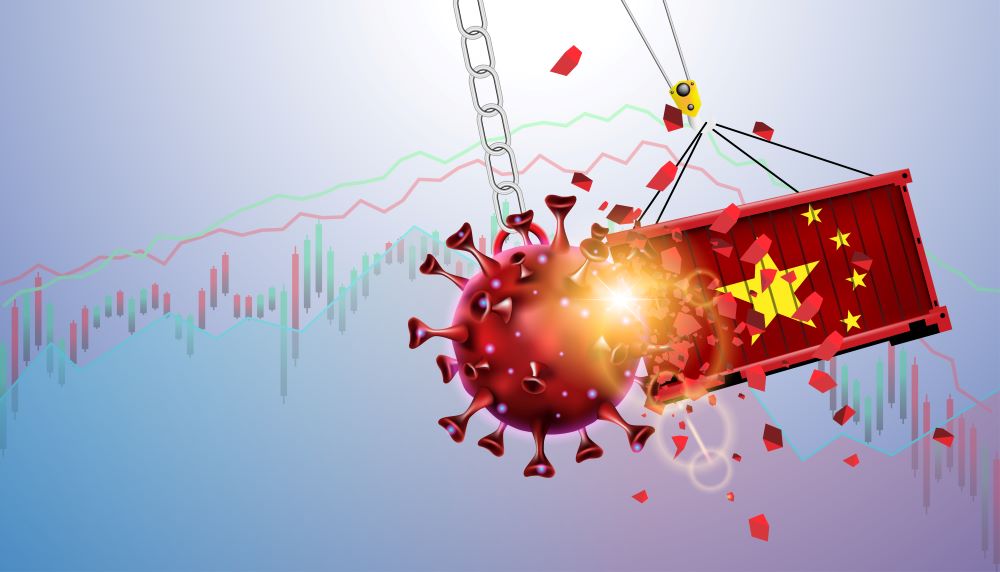
China suffered its first drop in industrial production since March 2020 as harsh Covid lockdowns depressed its economic activity in April.
Having recovered rapidly after the initial Covid shock of early 2020, it was expected to rise again despite the recent restrictions, albeit marginally. Instead, it dropped 2.9%, according to the FT.
Retail sales were also down 11.1% year-on-year, almost double the forecasted fall of 6.6% fall from economists polled by Bloomberg.
Missed targets
China’s GDP rose 4.8% year-on-year in the first quarter, missing the Chinese government target of 5.5% for the year.
With dozens of cities and hundreds of millions of people across China under full or partial lockdowns, economists have slashed growth forecasts for the second quarter.
Global impact
Bloomberg reports that the effect of disruption is being felt by many consumer brands as supplies of everything from Adidas trainers to Tesla cars have been affected by the lockdowns.
China accounts for about 12% of global trade and the upheaval has begun to spread to other economies, threatening to further stoke rising inflation.
Jonathan Gold, vice president of supply chain and customs policy for the National Retail Federation in Washington, said: “Once Shanghai opens up again and everything is back into rotation, and you see all the vessels heading towards the US, that can pose additional challenges with additional congestion.”
Exodus
Foreign firms in China are also bracing for a “mass exodus” of staff this summer, due to Covid restrictions and lockdowns, reports the Loadstar.
A survey by the German Chamber of Commerce in China shows nearly one-third of foreign employees plan to leave, with 10% aiming to do so before their current employment contract ends.
More companies have been given the green light to restart operations, but the survey shows businesses allowed to resume production under lockdown are “on average, operating at 46% of their total production capacity”.
Production is being hampered by “lack of logistics availability (69%), missing raw materials and pre-products (69%), missing transport permits (56%), additional workers cannot leave their compound (56%) or their districts (43%) and uncertainty due to rapidly changing policies (41%).”
Unacceptable
Maximilian Butek, executive director of the German Chamber of Commerce in China, said that China’s closed loop productions “are unacceptable as a long-term solution for German companies to operate in China”.
Trust in Chinese supply chains is decreasing, he added, which would lead to more supply chains being transferred to other countries.
Some companies have already announced plans to move away from China, including Intel which is planning to invest $88bn on chip production in Germany, Ireland, France and Italy.
McKinsey is predicting a large migration in manufacturing over the next five years and expects reshoring and nearshoring to relocate up to 26% of global production.
Europe too
Europe is also facing a productivity dip with Brussels cutting its growth forecasts, reports the FT.
The European Commission forecasts the EU and euro area are set to expand by 2.7% this year, down on earlier 4% predictions.
Inflation is expected to surge above 6% in both the EU and euro area, with some countries seeing double digit inflation.
Things could be even worse if Russia cuts its gas supply, which would decrease growth to just 0.2%, according to the Commission.

